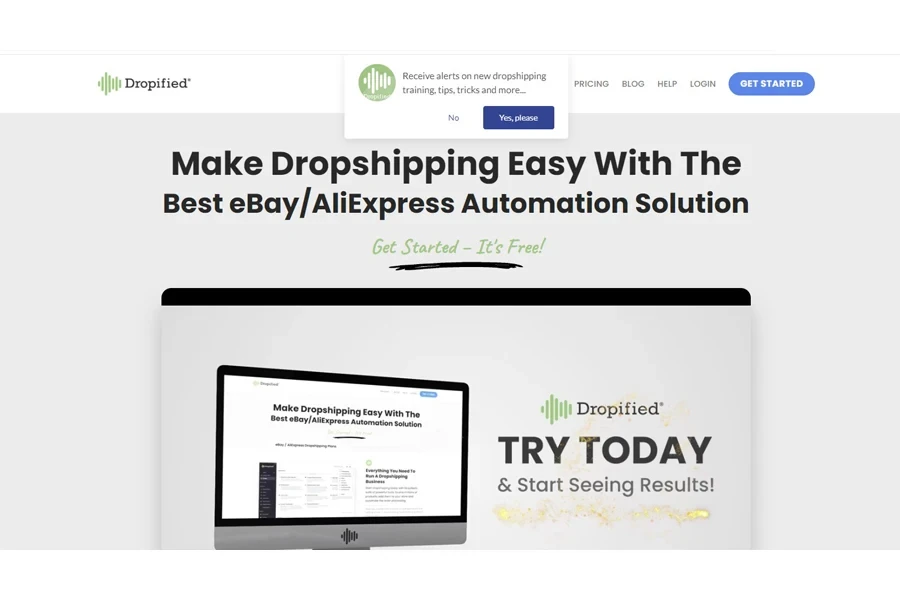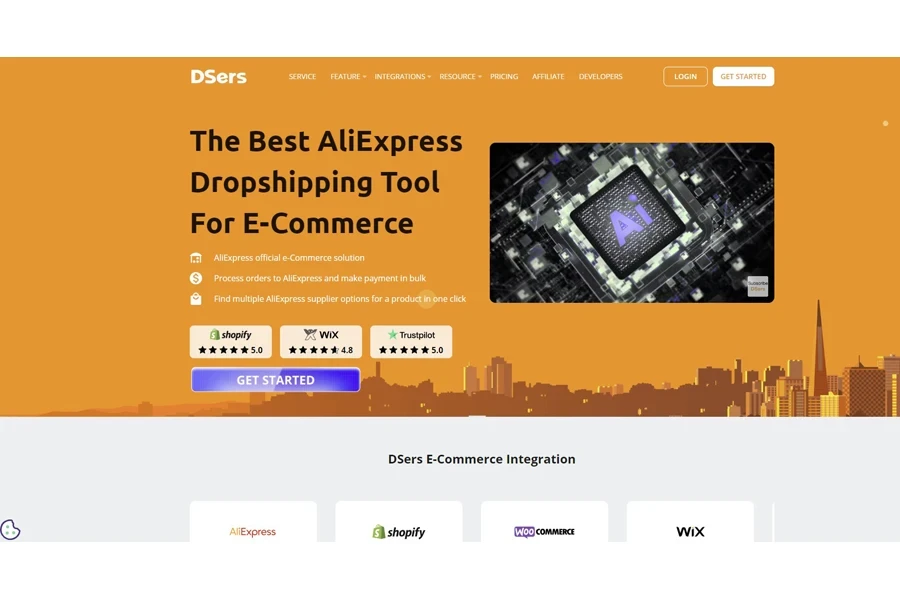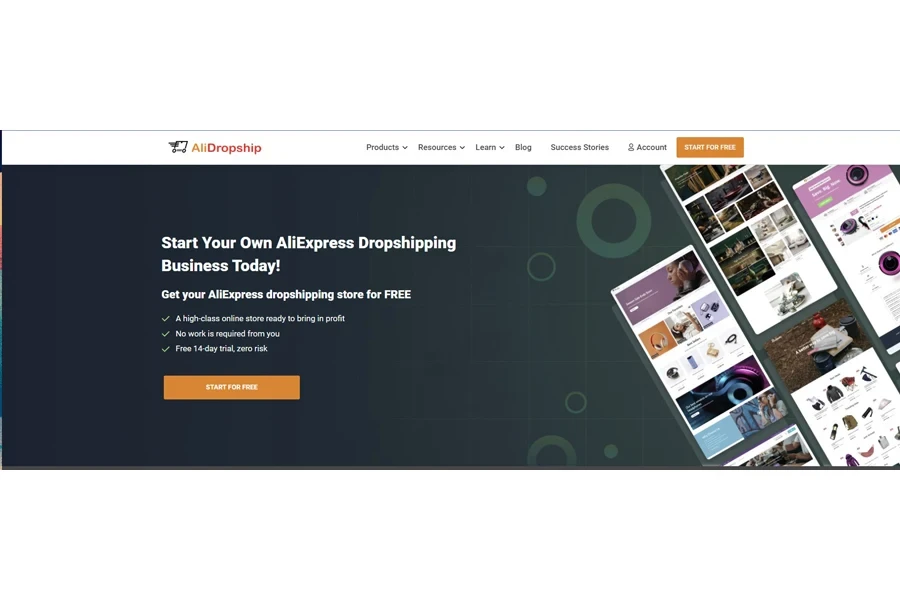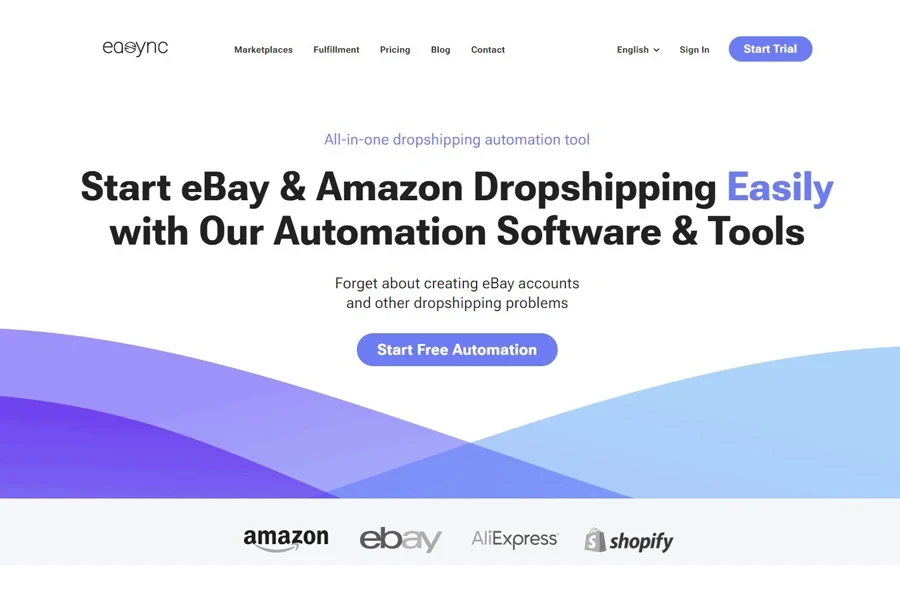Sorting and keeping up with orders can be demanding for a dropshipper looking to run a successful online store, especially if they’re not automating their processes. Running a thriving online retail business without the hassle of maintaining inventory or a physical warehouse sounds promising.
However, as your dropshipping rakes in more revenue, managing every detail could quickly fall out of line, and that’s where the automation tools come into play.
Here are the most dependable dropshipping tools for scaling your e-commerce business.
Table of Contents
Why use dropshipping tools?
The best dropshipping tools for your e-commerce store
Conclusion
Why use dropshipping tools?
1. Order processing

One of the true-and-tested hacks for scaling your dropshipping business is automating order processing when forwarding orders to your different suppliers. Doing it manually will be a pain, not to mention the human errors you’re bound to make.
2. Inventory management
Inventory management tools are best for real-time synchronization, as they help limit you to only selling readily available products.
Say, for instance, you’re a dropshipper with a couple of suppliers across various platforms; you want to work with a tool like Spocket, which has 25,000+ suppliers in one place, streamlining product sourcing.
3. Pricing
While most dropshipping stores have low margins, you need a profitable pricing model to stay afloat. A tool like Prisync, for instance, tracks millions of products and pushes alerts anytime your competitors change their prices.
4. Access actionable analytics
Using data when running a dropshipping business eliminates all the guesswork, especially when scouting for a profitable niche.
For this reason, you’d need a tool that pulls data across all your stores and suppliers into metrics-driven reports for insights on the best-sellers, potential profit margins, and marketing ROI, among others.
The best dropshipping tools for your e-commerce store
1. AliShark

If you’re a dropshipper sourcing products from AliExpress, the AliShark Google Chrome extension is a must-have. It streamlines product research based on sales volume, customer reviews, and competition levels, which is exactly what you need to scale your dropshipping business.
Using its filtering options, you’ll quickly find insights into winning products with high demand and low competition. In other words, online store owners can narrow their search results based on shipping time, supplier ratings, and price range.
2. Dropified

Dropified automates the entire drop-shipping process, from product sourcing to order fulfillment and customer management. We recommend using Dropified to source high-demand products from various suppliers, including AliExpress and Doba.
Merchants that use this dropshipping app have achieved seamless automation and efficient management of product sourcing and order fulfillment. Dropfiied automatically forwards an order to the supplier, so you don’t have to handle manual order processing.
Besides that, the tool integrates with popular e-commerce platforms like Shopify, WooCommerce, and BigCommerce.
3. AutoDS

AutoDS is another all-in-one platform that automates finding profitable products, inventory management, and order fulfillment. It simplifies the process of importing products from different suppliers and marketplaces into your online store.
AutoDS really shines when it comes to the fulfillment of orders. The tool forwards the order details to the appropriate supplier, reducing the risk of errors and saving time. You can also integrate with popular marketing platforms like Facebook and Google Ads to create and run ad campaigns.
Other automation features you can leverage include email marketing, abandoned cart recovery, and upselling, helping you optimize sales and customer engagement.
4. DSers

If you’re looking to dropship products from AliExpress, DSers is a solid platform that e-commerce sellers can use to find multiple suppliers for a product with a single click.
Apart from AliExpress, this dropshipping tool integrates with other popular e-commerce platforms, such as Shopify, WooCommerce, Wix, and Jumpseller.
After identifying winning products, you can edit them alongside their variants and upload them to your store. There are countless retailers you can work with, helping you compare margins and stay on top of industry trends.
5. AliDropship

Alidropship is the ultimate tool for starting your own AliExpress dropshipping business. The platform has a dropshipping calculator that helps you estimate potential earnings on a product.
This platform has a team that helps you build an online store. You can choose from the most profitable e-commerce niches. You’ll be assigned a personal manager to help fill your catalog with bestsellers.
There’s also an array of add-ons for easy marketing, setting profit margins, one-click imports, top-selling AliExpress products, and more.
6. Easync

You can start free automation with Easync to dropship from AliExpress, Shopify, eBay, and Amazon. If you don’t know which products to sell, this tool allows you to find bestsellers on popular marketplaces.
Easync is the go-to dropshipping tool for streamlining operations with automation. It helps the seller analyze available product options for order processing with one click of a button. Since it works with the most popular e-commerce platforms, you can optimize sales using data-driven strategies.
7. Zendesk

Use Zendesk to offer a personalized customer service experience while running your dropshipping store. Its integration capabilities with major e-commerce platforms make engagement with online shoppers seamless.
A single dashboard allows you to manage customer interactions, track complaints, and review customer data. The dashboard also lets you respond to queries from various channels, including email, chat, social media, and phone calls, so no customer inquiries are overlooked.
8. Google Analytics

You’ll need Google Analytics to gain valuable insights into website traffic, user behavior, and marketing efforts. While the tool is primarily for website analysis, it would be useful for dropshippers looking to understand their store’s performance and make data-driven decisions.
The dropshipper monitors the store’s traffic sources, visitor trends, and conversion rates in real-time. You’ll see what pages shoppers visit and how long they spend on each page so you can learn more about improving the overall user experience.
Conclusion
As a dropshipper, you want to leverage the right tools to stay ahead of the competition. To scale your e-commerce business, it’s worth automating order processing, inventory management, and accessing actionable analytics that optimize your workflows.
Working with the right dropshipping tools will streamline processes, minimize errors, and ultimately drive efficiency and profitability in your e-commerce business.




